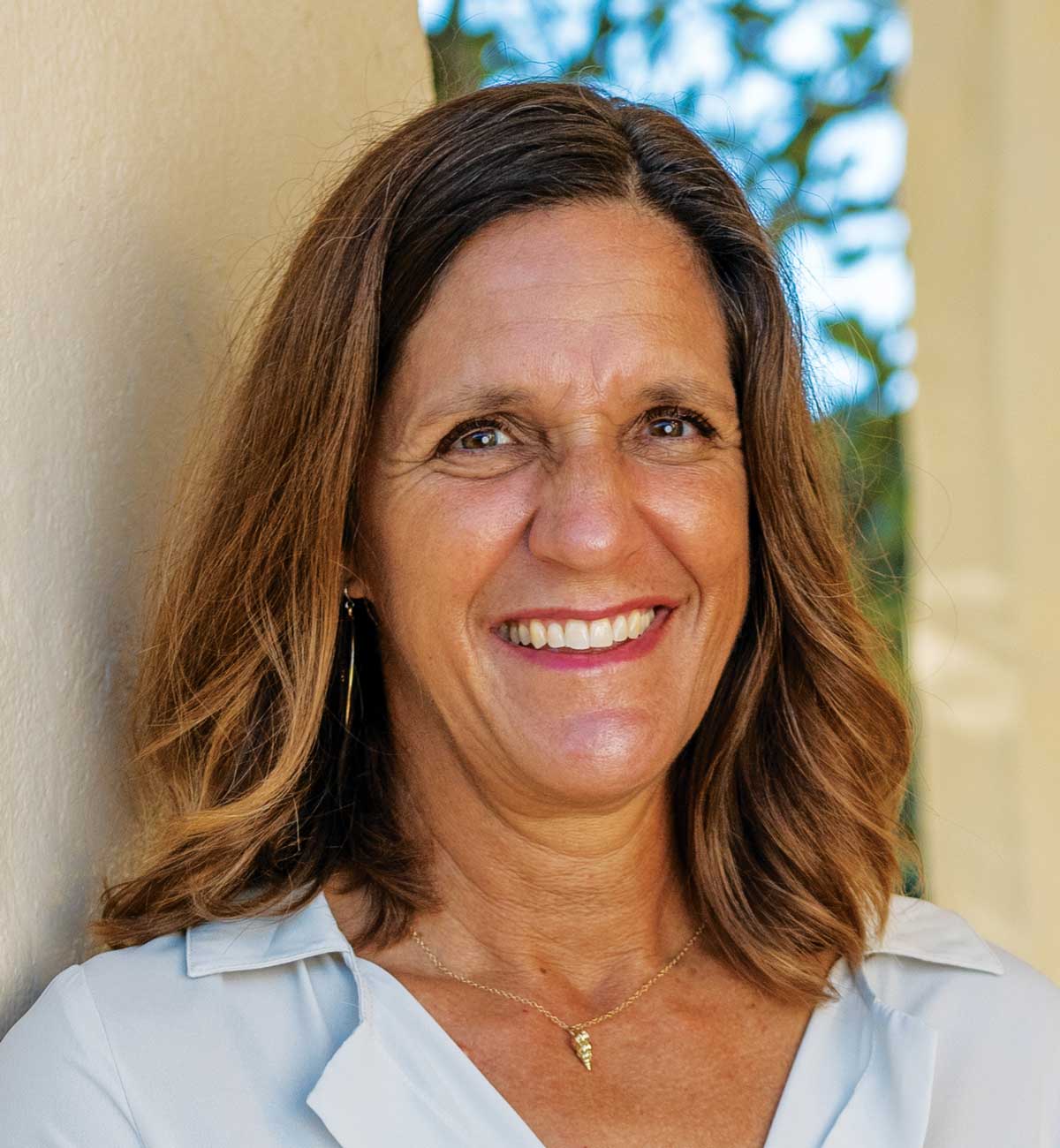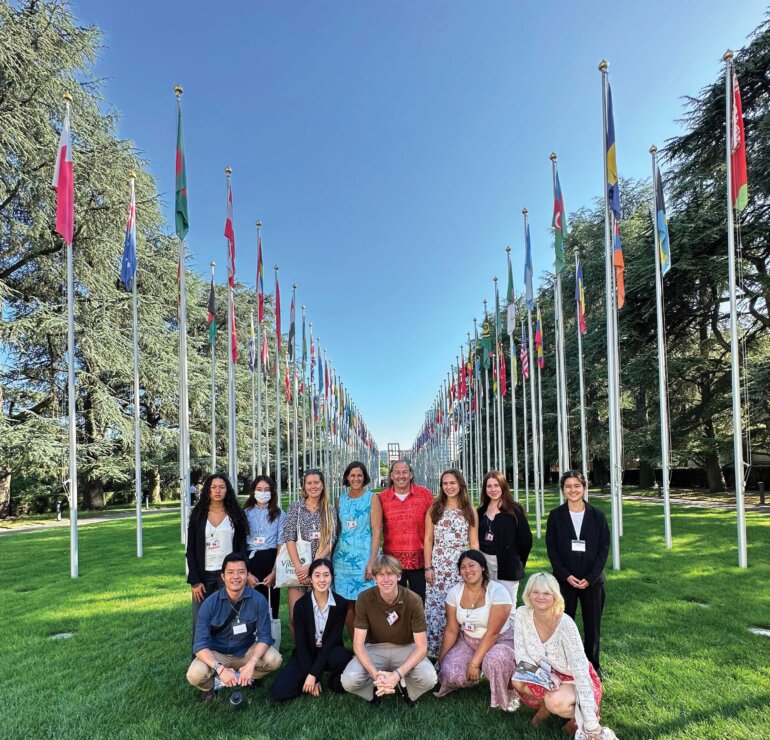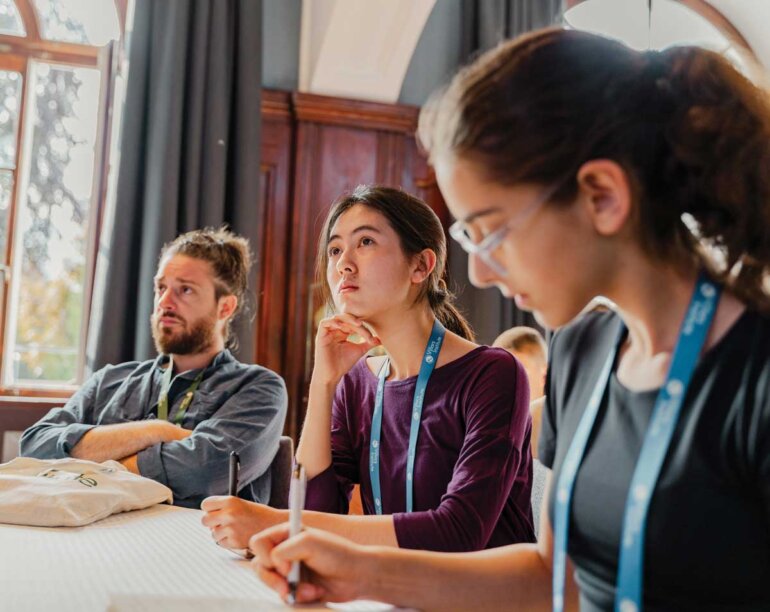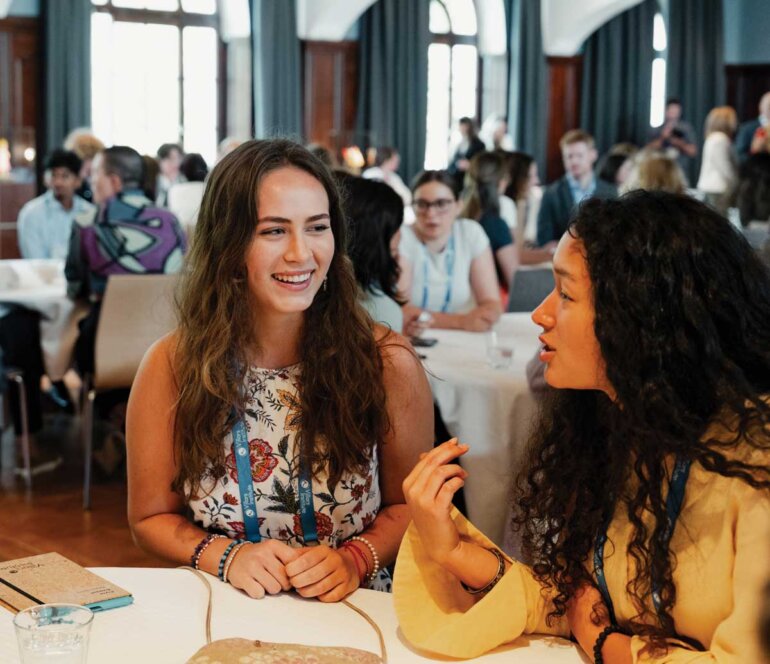Destination Sustainability

By Debbie Millikan
This summer, Punahou School led a group of 10 high school students – including five from public schools – to an international conference on climate change in Switzerland. The Villars Symposium was designed to facilitate intergenerational conversations on accelerating change towards a net-zero economy by focusing on impact investments, nature-based solutions and applying emerging technologies for a just energy transition.
But why Switzerland? That was the question that I kept being asked. Would the outcome of taking students halfway around the world be worth it? It was a valid question and one I did not take lightly. As I thought about this matter extensively, I kept arriving at the same conclusion: We will make the journey because it will expand young minds – what could be more powerful than that?
I knew participants would gain a lot from interacting with international students; meeting experts in the financial, technology and policy sectors; and being immersed in transformative conversations on human rights and climate change at the United Nations in Geneva. All of those things happened, and much more.
Vital discussions were had around collaboration, recognizing the value of diverse perspectives, and the profound realization that sustainability does not live in one discipline or field. Solutions will come from interdisciplinary initiatives and will require all of us working across diverse careers to solve the greatest challenge of our time. When I reflect on the impact that climate change is having on our planet – not to mention on our beloved ‘āina, with the devastating fires in Maui – I see the urgency to think big and to take bold action.
One of the most impactful takeaways from Villars was the students’ reflections on a sense of hope that there are others working hard to solve these problems and, most importantly, that they now see themselves doing some of the heavy lifting (which they had not before). Following the trip, one of the Villars Fellows said: “Now I see a path for my future in the climate issue.” Another student noted: “Above all else, this experience reinforced my sense of agency.”
This is the best type of outcome that an educator can hope for – when students feel empowered, rather than overwhelmed and apathetic. Instead, the students now see their efforts as critical to the collective work. All of the Villars Fellows returned inspired to educate their fellow classmates and have a desire to find their way to leading collaborative projects addressing climate mitigation.
As Punahou builds its sustainability leadership program for Hawai‘i’s youth, I am convinced that we can create similar transformative experiences right here by working with our global partners while also grounding students in the unique culture and perspectives of Hawai‘i. I have no doubt we can achieve this – and much more. But we must act with urgency to ensure that all young people in Hawai‘i are inspired, empowered and prepared for climate action.
Top left photo: Punahou led a group of 10 high school students, including five from public schools, to a four-day international symposium in Villars-sur-Ollon, Switzerland, centered on sustainable practices, net-zero carbon emissions and emerging technologies. Students also engaged in workshops in Geneva with organizations including the United Nations.
Bottom left photo: During the conference, participants heard from world-renowned sustainability experts, exchanged ideas with international students and engaged in transformative conversations around climate change.



